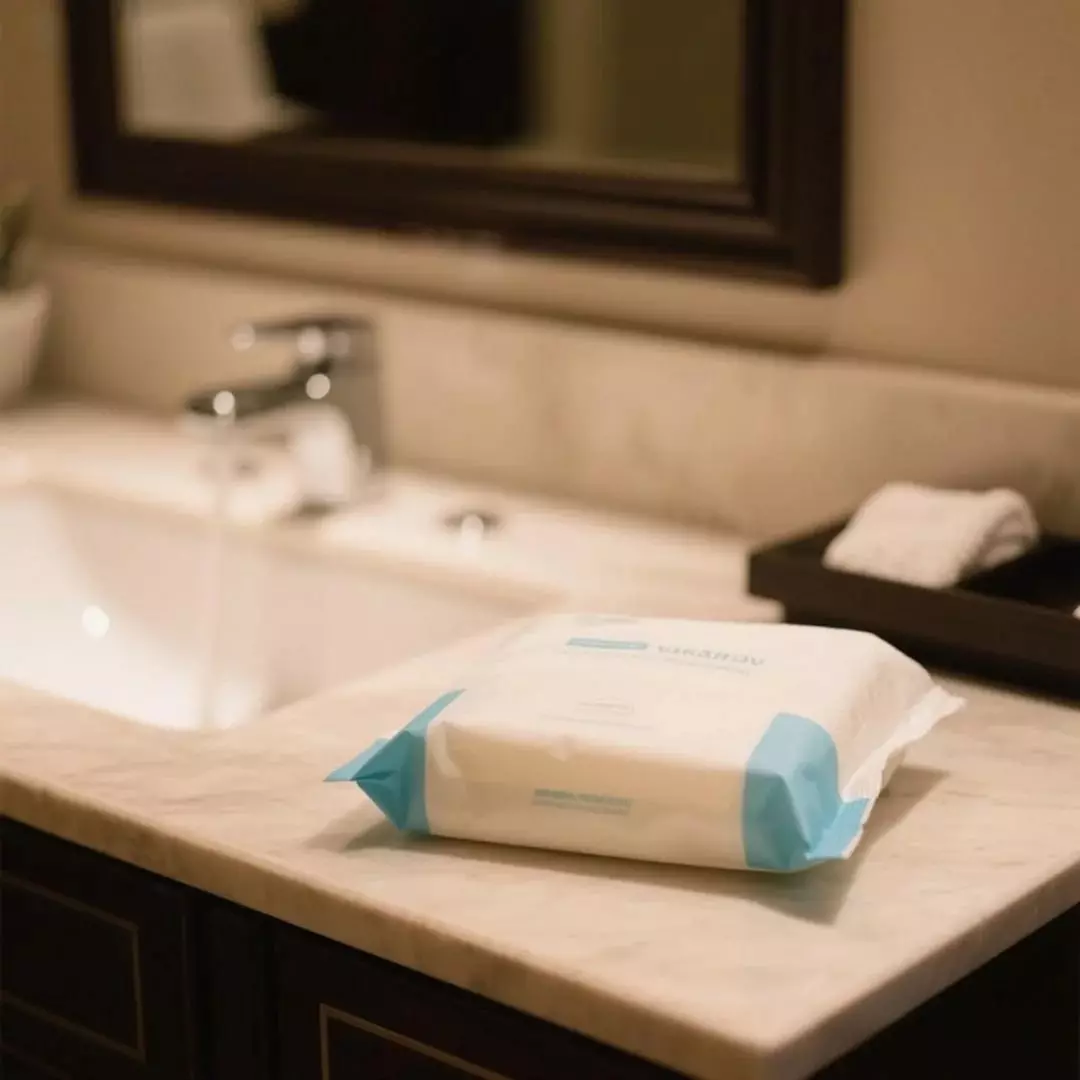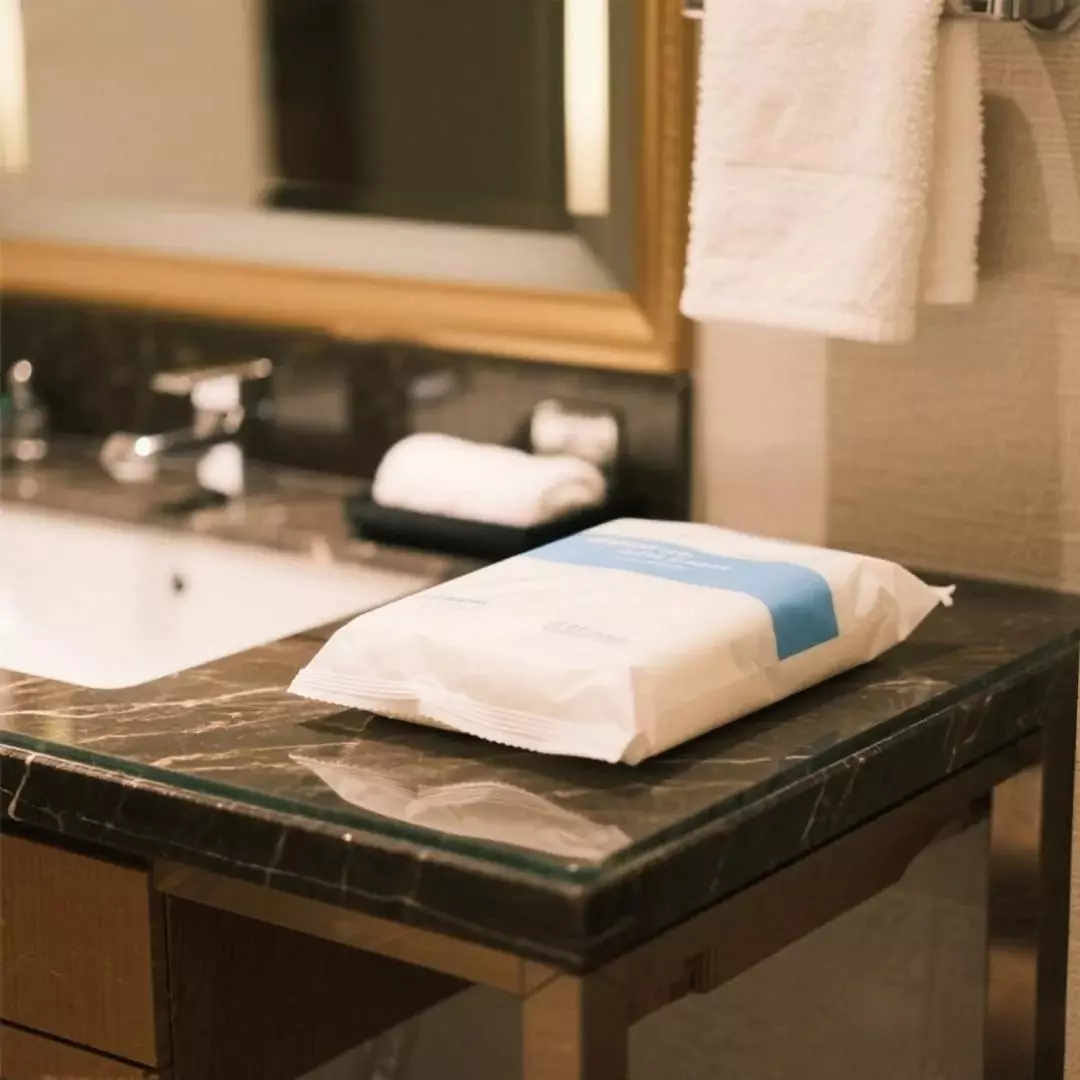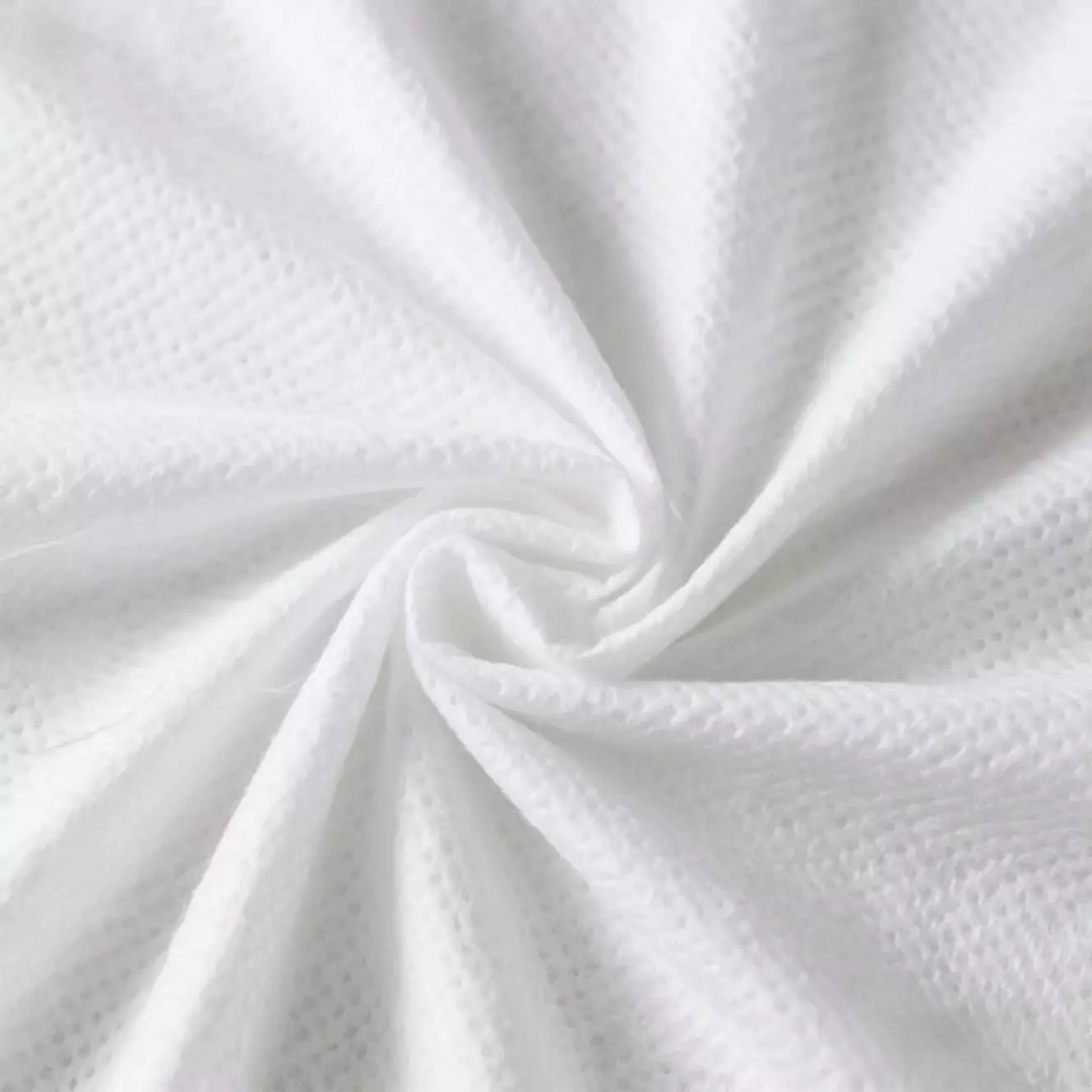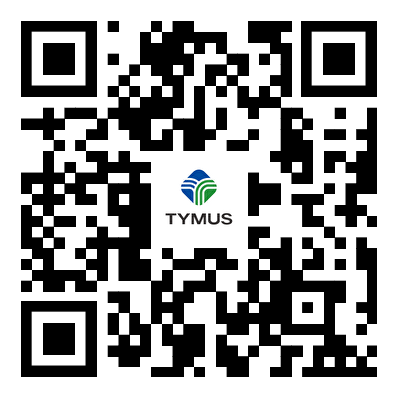- English
- Español
- Português
- русский
- Français
- 日本語
- Deutsch
- tiếng Việt
- Italiano
- Nederlands
- ภาษาไทย
- Polski
- 한국어
- Svenska
- magyar
- Malay
- বাংলা ভাষার
- Dansk
- Suomi
- हिन्दी
- Pilipino
- Türkçe
- Gaeilge
- العربية
- Indonesia
- Norsk
- تمل
- český
- ελληνικά
- український
- Javanese
- فارسی
- தமிழ்
- తెలుగు
- नेपाली
- Burmese
- български
- ລາວ
- Latine
- Қазақша
- Euskal
- Azərbaycan
- Slovenský jazyk
- Македонски
- Lietuvos
- Eesti Keel
- Română
- Slovenski
- मराठी
- Srpski језик
Disposable Towel for Hotel: Zero Waste Total Elegance
2025-07-31
The Invisible Pain Points of the Hospitality Industry
In the lobby of a seven-star hotel in Dubai, a guest frowns at the broken disposable towel in his hand after wiping the water stains on the poolside; in an eco-friendly resort in Bali, the manager has a headache over the tons of towel waste generated every month - this is the undeclared predicament of the global hospitality industry: it is always difficult to reconcile the traditional disposable towel between the “environmental friendliness” and the “user experience”. This is the unspoken dilemma of the global hotel industry: traditional disposable towels have always struggled with “environmental friendliness” and “user experience.
Either you choose coarse non-woven fabrics and sacrifice the guest experience for a low price, or you use thick cotton towels, which have been criticized by environmental groups for the energy they take to clean and the chemical residue they leave behind. As Generation Z consumers put “sustainability” at the center of their hotel choices, and as frequent travelers become increasingly demanding in terms of skin sensitivity, this game has escalated from cost control to a critical battle for brand survival.
Technology Breakthrough: How Mixbond® Re-engineers Product Logic
“The real solution is not to choose between two options, but to create a third option with technology.” The TYMUS R&D team gave this answer in the latest release of Disposable Towel for Hotel.
Material Revolution: When Wood Fiber Meets Nanotechnology
Through the exclusive Mixbond® Lignin Spinning Technology, natural wood is broken down into 0.1mm ultra-fine fibers, which are cross-linked with plant-based binders to form a three-dimensional mesh structure. This design allows the towel to have both:
Towel-level feel: 65% more fluffy than traditional non-woven fabrics, so you feel like a cloud on your skin when you wipe.
Sponge-level water absorption: a single towel can absorb 500ml of liquid, and lock water without reverse osmosis.
Leaf-level degradation: buried in the soil for 60 days to naturally decompose, pH-neutral without destroying the ecology.
From standardization to customization
At a capsule hotel in Tokyo, Disposable Towel for Hotel, a customized model with a thickness of only 1.5mm, is rewriting the economics of space. “Traditional cotton towels take up 30% of the space in our linen room, and now these ultra-thin towels make storage three times more efficient.” The store manager shows off customized packages printed with city silhouettes, “Guests even take them away as souvenirs.”
And at a resort in a coral sanctuary in the Maldives, towels made of 70% lignin fibers are buried in the sand after use, and after two months are turned into nutrients for cultivating seagrass seedbeds. “We have finally found a way to reconcile with the ocean.” The environmental director points to a video of the degradation process filmed by a dive guest - a piece of content that has received 2.7 million natural spreads on TikTok.
Industry reinvention: when disposables become brand equity
High-end hotel brands know more than ever: a towel can be a cost item or a value amplifier.
The Experience Dimension: Memory imprinting in the details
The Desert Palace Hotel in Dubai hot-stamps guests' initials on the edge of the Disposable Towel for Hotel, which is presented to guests in a customized bamboo box upon checkout. “One oil tycoon rebooked his suite specifically for the towel, calling it 'luxury performance art in the desert'.” The housekeeping manager reveals.
Environmental narratives: from burden to marketing tool
Scandinavian Ice Hotel places degradation experiment kits in each room: guests can bury used towels in pots with seeds and scan QR codes to watch the decomposition process in real time. “This experience has boosted our green premium by 22%,” says the marketing director, ”and the #GrowYourTowel hashtag on social media has amassed 160,000 exposures.”
A look ahead from product to eco-leap
TYMUS announced the launch of its Hotel Recycling Program:
Developed plantable boxes with native plant seeds in collaboration with global designers
Launched the “Carbon Footprint Visualization System”, which allows hotels to view in real time the environmental contribution of each towel from production to degradation.
Development of the second generation of Mixbond® technology, which in the future will be able to incorporate regional waste such as coffee grounds and seaweed.
“Imagine a Paris hotel with towels made from local sycamore leaves and a Southeast Asian resort with towels that restore coral reefs.” The CEO depicted at the launch event, “When disposables become the starting point of the eco-cycle, the hospitality industry will truly step into the carbon-negative era.”
Translated with DeepL.com (free version)





